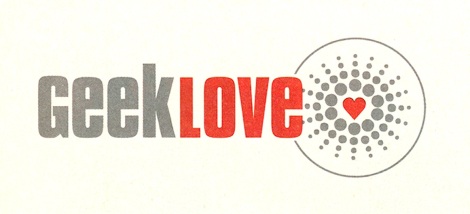Many people have tried to answer the question of the odds of you existing. None of them have done it well.
__________________
Most people, if they do not believe in gods or souls, believe that death is the annihilation of their existence or self. Many find this frightening. But when we discover what thing we are actually referring to when we say “I exist”, we find that this entity cannot actually behave that way: it cannot come into being with a particular human body or disappear with the death of that body. This book provides a purely logical argument, without emotional or mystical appeal, that materialist reincarnation—reincarnation without souls or spirits—is the correct view of personal existence. This belief is also called Open Individualism.
___________________
What are the odds that you would have come into existence? Evidence suggests that a great many people have thought about this question, and think it at least makes sense, even though few have actually attempted to calculate a specific number. In fact, this calculation turns out to be much more difficult than it at first appears, approaching the absurd. Nevertheless, most people seem to have a general sense that the odds are quite long. At minimum, people usually believe a) that they exist now and b) that they might not have, had things gone differently in the time before they were conceived. Had your father gone up to bed a second earlier or later, had your mother been called away on business that week, had your parents never met, had your parents never even existed, or had Napoleon not lost at Waterloo or had Billie Holiday not sang “God Bless the Child”… And so on. The basic idea is that had that sperm not joined with that ovum, then you would simply not be. And so we are all winners, and should all be grateful.[1]
The belief that you would not exist unless one particular sperm and one particular ovum had joined—that your existence depended on the joining of those two gametes—is one of the two things this book is about. I’m going to call it the Standard Belief about Coming into Existence, or Standard Belief for short. I’ve found it to be widely held across all types of people, from respected scientists and philosophers to the general public, from theists who believe in souls to atheists who believe in no such thing, and from those who have thought about it deeply to those who barely give it a moment’s consideration when it comes up. Yet, there is something wrong with it. It cannot possibly be correct.
What the Standard Belief amounts to is that some physical factors in the world, such as your DNA or parentage, have brought you into existence. The problem with this is, where do we find the essential connection between a physical factor such as DNA and your existence? For example, why couldn’t the human being that you are have come into existence and not been you, in the same way that all of the other human beings in the world came into existence and were not you? In the same way, in fact, that a lot of other people with your same sequence of DNA could have come into existence and not been you? There’s an unlimited number of possible identical twins to you, or clones of you, and yet only one is or would be you. Why that one? Or why one of them at all, rather than none of them? Why, in fact, was your existence even a possibility in the universe at all? Why was it the case that any organism at all would have brought you into existence, rather than not?
These are deep and surprising questions—I’ll call them the Enigmas of Existence—that some may grasp in an instant, with a sort of vertiginous existential insight that may seem inexpressible in words. This existential insight can come and go, depending on your state of mind. It may strike you at completely banal and random moments or particularly profound ones. And it’s the kind of insight that tends to slip through your fingers once you’ve had it, and you quickly forget what it was about as the everyday world again overtakes your thoughts. And so, one of my aims in this book is to give you tools to grasp onto this existential insight and hold it for long periods, so you can examine it and better understand it.
Some of you may not have ever had this existential insight, and so you may not grasp these kinds of questions at all. The questions may seem quite mundane and easily answered, or even opaque and confusing. And, in my experience, whether or not you see the point in these questions has little to do with education or intellect. They are almost pre-philosophical, preverbal, the kind of thing a child might think of, or that some among our primal ancestors 100,000 years ago might have thought of, without any ability to express. It may just be a particular personality type that gets vexed by such questions. Another of my aims in this book then is to bring those who have never experienced this around to seeing what these questions are really about, through descriptions and stories and arguments and analysis. I want to stir in you that vertiginous and confounding experience of your own existence too.
Others of you still will immediately judge these questions to be misguided, resting on basic errors of one sort or another: it’s a Cartesian fallacy, or the self is a hallucination, or everybody has to be someone. I’ll also speak to you. I’m going to show you why they are not misguided, why in fact they and others like them are unavoidable questions. But here’s the key: they are unavoidable, if you hold the Standard Belief about Coming into Existence that I described in the first paragraph, that you wouldn’t exist if that one particular sperm and one particular ovum hadn’t joined. This is because the Standard Belief implies another belief: that you exist, and exist fully, not only in the present but also in the past and future of your body and in alternate situations of your body. The connection between these two beliefs, and the reasons why these beliefs make these questions real and unavoidable, are somewhat complicated, but I will try to make them clear.
These Enigmas of Existence and the existential insight they elicit are what I will explore in detail in Chapter 2. The purpose of this exploration is to get you dissatisfied with the Standard Belief. I want you to see the problems I see with it, and to leave you wanting a better belief. This better belief about existence will be described in Chapters 4 and 5. It is the second of the two things this book is about, and I’ll tell you what it is in a moment. First let me address what I think is a tempting but wrong answer to the Enigmas of Existence.
Some people might think that the unbridgeable gap between the essence of our existence and our physical human bodies points to the necessary existence of a soul. This was actually my first conclusion, many years ago, and I even wrote most of what makes up the first half of this book with that conclusion in mind. I didn’t see how any physical process like evolution or the joining of two gametes actually explained why I existed—they explained why my physical body exists, but not why I exist—and I thought the problems with the Standard Belief pointed to an essential mystery of existence that materialism—the belief that all that exists is part of our material universe, i.e., that there are no gods and no souls—simply couldn’t account for. But I have come to find this false on three counts.
First, there is a perfectly good materialist way to answer these questions, these Enigmas of Existence, without bringing in a soul. This is the better belief about existence just mentioned and that I’ll tell you about in the next paragraph. Second, there are many very good reasons for not believing in a soul, and many other very good reasons for believing in materialism, so if materialism can provide satisfactory answers to the Enigmas of Existence, then it should be our belief. I’ll give some of the good reasons for not believing in a soul in this book, but not all of them. Third, much later I will show that a soul view, even if it were plausible, wouldn’t actually provide a satisfactory answer to these questions anyway. So the choice is clear.
What then is this perfectly good materialist way to answer these Enigmas of Existence that arise when you accept the Standard Belief? What is the new belief about existence I argue for in this book? The short version is this: you should not believe that any particular physical factors—such as a particular set of parents, a particular pair of gametes, or a particular combination of DNA—were required for you to come into existence. You should instead believe that you would have come into existence no matter which human beings came to be. In other words, if you weren’t the human being you are right now, you would be someone else. And this belief has a necessary and, if I may say so, quite revolutionary consequence: you should also not believe that you will cease to exist when you die. You will rather simply become someone else. Well, “simply” is the wrong word. It’s actually just about impossible for us to conceive of the correct way of viewing death under this new belief—it relates closely to the impossibility of conceiving the correct way of viewing time—but it is something like becoming someone else. Something like becoming all people, all conscious beings, in fact. It is at any rate definitely not ceasing to exist, any more than living another ten years of your life right now would be ceasing to exist. If you are happy that you will exist in ten years should your human body survive to that point, then you should also be happy (if not quite equally happy, because of the loss of all the content of your life) that you will exist after your human body dies and you become another human body or other physically embodied conscious being. You can think of it as a sort of materialist reincarnation. This view is also called Open Individualism.
I don’t blame you if you are wondering how any kind of reincarnation could be materialist, could be true without the existence of souls. It is difficult to conceive. If I’m just a material object, then what exactly is it that survives, or moves to the next body, upon the death and disintegration of this one? There is no thing, and there need not be one. The key is to simply see that you’ve been tacitly assuming your existence to be something it cannot be, something that is incoherent in the details. There is simply no way to make the Standard Belief consistent or non-paradoxical. It must be rejected.
____________________
Just what exactly do I mean by my or your “existence” anyway? I keep saying that term and making bold claims about it, as though we all know exactly what I mean. But do we?
Almost certainly not. Some people mean what I mean by it. Some people consciously do, a great many more unconsciously. Some people reject what I mean by it, or at least think they do. Some people have no idea what I mean by it. Some people quite explicitly mean something different by it, and will argue at length for their own meaning, and that I am dead wrong. And so, we must get this straight before we do anything else. This I will do in Chapter 1, aptly titled “Foundations”, where I provide an answer to the question, “What do we all mean when we say ‘I exist’?” What are we referring to or verbally “pointing at” when we say that? Or, to put it in more immediate terms: What is the actual thing you’ve been thinking about this whole time every time I’ve talked about your existence? Stop and reflect on that for a moment. Many people would never even suspect this to be a question that needs answering. But it does. You may think it’s obvious that we are all talking about the same thing when we talk about existence, but it’s not.
To give you a preliminary idea of what I will be aiming to accomplish in the first chapter, let me first point out two things people think they mean when they say “I exist” that I consider wrong, or at least not always right.
Some people consider their existence to be a construction, built up over years of socializing and education and the like, and situated within a context of a culture and community of people. Some would go so far as to say this entirely defines what they mean when they say “I exist”. They are simply the bundle of these ideas and attitudes and everything else they’ve collected over the years. This is a fine and important answer, but it is an answer to a different question than the one I’m asking, though the form of the question may sometimes appear the same. It is thus the right answer only some of the time. This construction, social or otherwise, is a major part of what I will call “content”, the content of our lives and thoughts, and is distinct from what I’m going to call “existence”. One of my primary goals in fact is to isolate our concept of existence from content, to avoid the muddles we often get into when discussing existence. The weightiest tool I will bring to bear on this task is a science fiction thought experiment I call the perfect doppelgänger, which takes up a large portion of Chapter 1. It involves imagining an exact replica of you, replacing you in the world, that isn’t you, but rather is someone else.
Alternately, some people just assume, quite naturally and sensibly, that when they say “I exist” they are simply saying that a particular human being exists, the one produced by those two gametes many years ago with that particular DNA. In other words, they claim that what is happening there is 1) they are a human body, and 2) that human body is uttering the words “I exist”, referring to itself, and that’s all there is to it. This too is right, but again only some of the time. Some of the time, especially when we are asking questions about our existence such as those I pose in this book—and in particular the Enigmas of Existence I posed above—we are not actually talking about a human body. And this is so even for some who strongly insist they are. At least I suspect so. I will give you my reasons why near the end of Chapter 1.
The thing I want to show you, the actual referent of “I exist”, the thing we are actually “pointing to” when we say that, is not either of these things. And it’s not so straightforward as they are, not so easy to describe or point out, which may help to explain why those two things are often mistaken for it. It is a more inchoate concept, and it may take some work before you see it.
____________________
Survival of death is no doubt a most pressing concern for a great many people, but thinking about it before its time comes up here would be a distraction. This book is indeed about death, but it is actually mostly about the first thing I mentioned, your origins, and understanding what is inexplicable about them. In other words, understanding what is wrong with the Standard Belief that you would not exist but for the joining of one particular sperm and one particular ovum. Origins is the topic we’ll start with and spend most of our time on. It is the topic that originally vexed me, and that I spent many years on without any glimmer of the idea that, at bottom, we are all one conscious being. I was just perplexed by all the purported explanations of how I came to be. The conclusions I’ve reached about death merely followed from what I concluded about origins.
If you remember just one thing from this introduction, let it be this: Everything that follows hinges on the question of “what caused you to exist?” My method will be to show that this question is unanswerable without believing in Open Individualism.
___________________
[1]Unless, of course, you agree with David Benatar (2006) that coming into existence is always bad. Or perhaps Schopenhauer: “Human existence must be a kind of error. It may be said of it; ‘It is bad today and every day it will get worse, until the worst of all happens’.” Personally, I’m pro-existence.
____________________
The current draft of this book is available in pdf only, at the following link.
The Odds of Existing, or Why Death Is Not The End
Feedback on this book draft is very welcome. You can contact me through this form or the email address on the pdf. You may also submit a public comment below.








